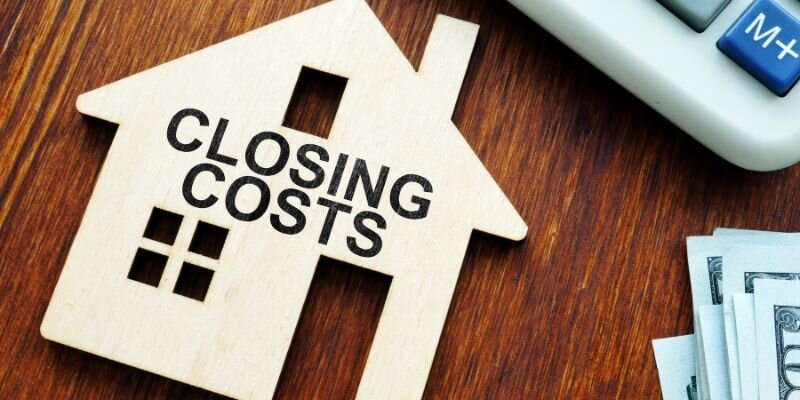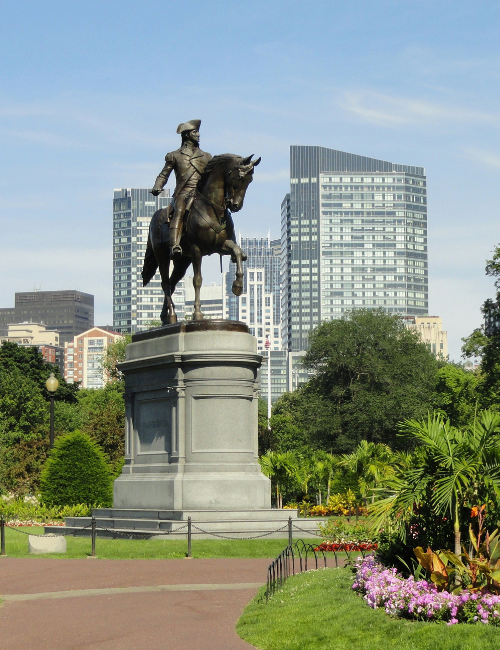
We will be very direct here. Yes, you’re gonna pay closing costs when you sell your Boston home. That’s just how it works. But in case you didn’t know, you’ve got way more control over these costs than you think.
Most Boston sellers end up paying 8% to 10% of their home’s sale price in closing costs. That’s around $61,600 to $77,000 on a typical $770,000 Boston home. Ouch, right? Here’s a detailed guide about closing costs in Boston, Massachusetts, so you know what to expect!
What Are Closing Costs in Boston, Massachusetts
Closing costs are all the random fees and taxes that pop up when you’re wrapping up your home sale. It’s like a way of making sure selling a house isn’t too easy, not just for you, but for every house seller.
Some of these costs are totally unavoidable because Massachusetts law says you gotta pay them. But you can also negotiate some of them or sometimes even get the buyer to cover if you do the negotiation right. “If you’re sorting out ownership or title details first, check out our guide on sell your Boston house faster using a quitclaim deed to simplify the process before listing.
Complete List of Massachusetts Seller Closing Costs

Your closing costs fall into two camps: the stuff you really have to pay and the stuff you might be able to wiggle out of. The big-ticket items include real estate commissions, transfer taxes, and attorney fees, while smaller costs like recording fees and title insurance round out the list.
Real Estate Commission
Commission fees are gonna be your biggest headache, but they’re also where you have the most room to save some serious cash.
Who Pays Real Estate Commission in Massachusetts
Traditionally, you’d pay both your agent’s commission AND the buyer’s agent commission. But after that big NAR lawsuit settlement in 2024, things are changing fast.
Now, buyers might actually negotiate their own agent fees directly instead of you footing the entire bill. This could save you a chunk of change, especially on Boston’s pricey homes.
Average Commission Rates in Boston
Boston agents typically charge around 5.39% total commission, split between listing and buyer’s agents. On a $770,000 Boston home, that’s about $41,503!
But don’t just accept whatever rate your agent throws at you. Shop around, negotiate hard, and remember that some discount brokers offer 1.5% listing fees. That could save you over $12,000 on that same house.
Transfer Tax
Massachusetts wants its share when you sell and there’s no getting around this one, too.
Who Pays Transfer Tax When Selling
You’re on the hook for transfer taxes as the seller; no ifs, ands, or buts about it. The buyer could theoretically agree to cover this cost, but good luck convincing them unless you’re in a red-hot seller’s market.
Most of the time, this one’s coming straight out of your proceeds.
Massachusetts Transfer Tax Calculation
Massachusetts charges $2.28 per $500 of your home’s value, which works out to about 0.46% of your sale price. So if you’re selling that $770,000 Boston home, you’re looking at roughly $3,540 in transfer taxes.
It’s not negotiable, it’s not optional, and it’s definitely not fun. But at least it’s predictable.
Property Taxes
You don’t pay a full year’s worth of property taxes, just your fair share based on when you actually owned the place.
How Property Tax Proration Works During Closing
Property tax proration is splitting the annual tax bill based on how many days you owned the home versus how many days the buyer will own it. If you sell in June, you pay for January through June and the buyer covers July through December. Sounds fair, right?
Well, it gets tricky because some towns collect taxes twice a year and the timing can make your head spin.
Suffolk County Property Tax Rates
Suffolk County (where Boston lives) has a property tax rate of about 1.04% of your home’s assessed value. On that $770,000 Boston home, you’re looking at roughly $8,008 per year in property taxes.
But remember, you only pay the prorated amount based on how long you owned the house during the tax year. If you sell in March, you’re only paying for about 25% of the year.
Title Insurance and Title Services
These make sure nobody else can pop up later claiming they actually own your house. It’s boring paperwork that could save everyone down the road.
Who Pays for Title Insurance in Massachusetts
In Massachusetts, sellers usually pay for the owner’s title insurance policy. Yes, lucky you. The buyer will typically handle their own lender’s title insurance, so at least you’re not stuck with both bills.
Some buyers might try to negotiate this during the sale, but it’s pretty standard for sellers to cover the owner’s policy in Mass.
Title Service Fees and Costs
Title insurance runs about 0.2% of your home’s sale price, so expect to pay around $1,540 on a $770,000 Boston home. Title service fees (the actual paperwork and research part) add another $723 on average.
These companies really dig through decades of property records to make sure there aren’t any surprise liens, unpaid contractors, or long-lost relatives with claims on your house. Boring? Yes. Necessary? Super.
Attorney Fees
Massachusetts requires an attorney at closing. No exceptions, no substitutions, no getting out of this one.
Who Pays Attorney Fees at Closing
You’re responsible for your own attorney’s fees, and the buyer pays for theirs. Sometimes you might end up with the same closing attorney (especially if it’s the lender’s attorney), but you’re still each paying your own share.
Don’t try to cheap out here. A good attorney can save you way more money than they cost if something goes sideways.
Average Attorney Costs in Boston
Boston real estate attorneys charge around $257 per hour, but most offer flat fees for straightforward closings. Expect to pay between $750 and $1,250 for a typical sale. This is not exactly pocket change, but it’s way better than hourly billing if your closing gets complicated.
Shop around a bit, but remember that the cheapest attorney isn’t always the best attorney. You want someone who knows Boston real estate law inside and out.
Recording Fees
This is probably the smallest line item on your closing statement, but somebody’s gotta pay to make your sale official. That somebody is you. Learn more about Selling House by Owner Paperwork in Boston MA.
Who Pays Recording Fees in Massachusetts
Recording fees are almost always paid by the seller in Massachusetts. It’s such a small amount that nobody really fights over it, and it’s kind of a “seller’s responsibility” thing since you’re the one transferring ownership.
The buyer might offer to cover it as part of negotiations, but don’t count on it. It’s not worth making a big deal about.
Recording Fee Costs in Boston
The recording fee in Massachusetts is about $48 on average. This is the cost of the government officially noting that you sold your house and the buyer now owns it. It covers filing the deed and mortgage information in public records.
Sure, $48 isn’t gonna make or break your sale, but every little bit adds up when you’re looking at tens of thousands in closing costs.
Buyer Incentives and Concessions
Many smart sellers budget for these little extras because they can make or break a deal in today’s market.
What Are Seller Concessions
Seller concessions are throwing cash at the buyer to make your house more appealing. These may be repair credits, closing cost help, or even covering their moving expenses.
Common concessions include covering inspection repairs (instead of actually fixing them), paying part of their closing costs, or offering credits for new appliances. Just remember, there are limits to how much you can legally contribute based on the buyer’s loan type.
When Do Massachusetts Sellers Pay Buyer Incentives
You’ll most likely offer buyer incentives when you’re competing with other sellers or when the market’s not exactly red-hot. If houses are sitting on the market longer than usual, providing some seller concessions can make your place stand out from the crowd.
Realistically, you need to budget about 2% of your sale price for potential concessions. On that $770,000 Boston home, that’s around $15,400 you might need to sweeten the deal. It sounds like a lot, but it’s better then having your house sit empty for months.
HOA and Condo Fees
If you live in a condo or HOA community, you can’t just walk away without settling up first. These fees can pop up at closing when you least expect them.
Who Pays Outstanding HOA Dues
Any unpaid HOA or condo fees are coming out of your pocket at closing. There’s no passing this hot potato to the buyer.
The HOA will send a final bill showing exactly what you owe up to the closing date and you’ll pay it whether you like it or not. Some HOAs also charge transfer fees (usually a few hundred bucks) to officially hand over ownership to the new buyer.
Meanwhile, Boston condo fees average around $389 per month. Depending on when you close, you could owe anywhere from a few hundred to over a thousand dollars in prorated fees.
The HOA will also want to see that you’re current on all assessments and special fees before they’ll sign off on the sale. Better check those HOA statements now rather than getting surprised at the closing table.
Do Sellers Have to Pay Closing Costs in Boston, MA

As we’ve shared, some costs are mandatory, while others are totally up for grabs in negotiations. Massachusetts doesn’t give you much wiggle room on the big stuff, but you might be able to shuffle some expenses around.
Mandatory vs. Negotiable Closing Costs
The state mandates certain closing costs that you cannot avoid. These include transfer taxes, attorney fees, recording fees, and any outstanding property taxes or liens on your property. Nobody’s getting out of these, so don’t even try.
However, things like title insurance, buyer incentives, and even some repair costs can sometimes be negotiated with the buyer. In a hot seller’s market, you might even convince the buyer to cover some of your typical seller costs just to win your house.
Massachusetts Law Requirements
Massachusetts law is pretty clear about what sellers must handle at closing. You’re legally required to have an attorney present, pay all outstanding liens and taxes, and cover the cost of transferring clear title to the buyer.
The state also requires you to provide certain disclosures about the property’s condition, though this doesn’t usually cost you money unless you lied about something major. Beyond these legal requirements, everything else is fair game for negotiation. Though market conditions will determine how much leverage you actually have.
How to Reduce Seller Closing Costs in Boston
Who doesn’t want to save some cash! There are definitely ways to trim your closing costs without cheaping out on the important stuff.
Negotiating Real Estate Commission Rates
Don’t just accept the first commission rate your agent quotes. You are not doing charity work here. Shop around and interview multiple agents to see who offers the best combination of service and price.
Some discount brokers charge as low as 1.5% for listing fees instead of the typical 2.5% to 3%. That could save you over $7,700 on a $770,000 home. However, make sure you’re not sacrificing marketing power or negotiation skills to save a few bucks. Sometimes paying a bit more for a great agent is worth it.
Shopping Around for Service Providers
You don’t have to use the first title company, attorney, or inspector that gets recommended to you. Call around and compare prices for services like title insurance, attorney fees, and closing services.
Some companies offer package deals or discounts for multiple services. The savings might only be a few hundred dollars here and there, but when you’re already paying tens of thousands in closing costs, every bit helps.
Plus, getting multiple quotes gives you negotiating power with your preferred providers.
Requesting Buyer to Cover Certain Costs
In the right market conditions, you can flip some of your traditional seller costs onto the buyer’s tab. This works best when there’s low inventory and multiple buyers competing for your house.
Ask the buyer to cover title insurance, attorney fees, or even part of the transfer tax as part of their offer. However, you need to time it right. If you’re getting multiple offers, you have leverage. If your house has been sitting for weeks, you’re probably stuck with the standard cost split.
Timing Your Closing Date Strategically
The timing of your closing can actually affect your costs, especially with property taxes and HOA fees. If you close early in the tax year, you’ll owe less in prorated property taxes. Meanwhile, closing at the end of the month can also reduce some daily prorated costs.
It’s not gonna save you thousands, but it might trim a few hundred off your total bill. That’s still money back in your pocket.
Typical Mistakes Massachusetts Sellers Make with Closing Costs

These mistakes happen all the time, but they’re totally avoidable if you know what to watch out for.
Not Budgeting for Closing Costs Properly
Many sellers get so focused on their sale price that they forget about the 8% to 10% that’s gonna disappear at closing. You’ll be crying into your coffee when you realize that $770,000 sale only nets you around $692,000 after all the fees.
Start planning for these costs from day one, not the week before closing when it’s too late to do anything about it.
Accepting the First Commission Rate Without Negotiating
Another massive mistake is accepting the first commission rate your agent mentions without negotiating or shopping around. That’s like buying a car at sticker price. Nobody does that!
Commission rates are totally negotiable and even a half-percent difference can save you thousands. Don’t be shy about asking multiple agents what they charge and what services they provide for that fee.
Not Reading the Closing Disclosure Carefully
Some sellers do not read their closing disclosure carefully before signing. Sellers often get hit with surprise fees because they didn’t catch errors or unauthorized charges. That’s why you need to spend the time to review every line item. Remember, once you sign, you’re stuck with it.
If something looks weird or way higher than expected, speak up before you put pen to paper.
Boston vs. Other Massachusetts Cities: Closing Cost Comparison
Boston sellers definitely pay more than their suburban counterparts, but you also get more bang for your buck. Here’s how the numbers stack up across Mass.
Boston’s high home values mean higher closing costs, but the percentages often work in your favor compared to smaller cities. The difference comes in negotiating power. If you’re in nearby suburbs, you can sell your Woburn house fast for cash and avoid many of the typical closing costs that Boston sellers face.
Boston sellers often have more advantages to get buyers to cover certain costs, especially in hot neighborhoods like Back Bay or Cambridge. Smaller Massachusetts cities sometimes have lower transfer taxes or attorney fees, but they also have less competitive markets where buyers expect more concessions.
Market Conditions and Their Impact on Who Pays Closing Costs
The real estate market is like a game of tug-of-war and whoever’s winning gets to call the shots on closing costs.
In a hot seller’s market, you basically become the king of closing costs. Buyers will bend over backwards to cover your expenses just to get their hands on your house. We’re talking about buyers offering to pay your transfer taxes, title insurance, and sometimes even your attorney fees just to outbid the competition.
It’s wild what desperate buyers will agree to when there are five other offers on the table. But flip the script to a buyer’s market and suddenly you’re the one making concessions left and right.
You’ll find yourself covering inspection repairs and offering closing cost credits. You’ll need to throw money at buyers to choose your house over the three others that have been sitting empty for months.
Simplified Closing Process with Cash Sales
Cash sales are comparable to the express lanes at the grocery store,Here’s how CNC Offers buys homes in Massachusetts to make closings faster and stress-free.There are way fewer items to deal with, so you’re out of there in half the time. But even cash deals have their own closing cost quirks you need to know about.
When a cash buyer takes over your sale, you can kiss goodbye to all the mortgage-related delays and complications that usually drag out closings for weeks. There will be no loan underwriting, no appraisal drama, no last-minute financing surprises that tank the deal three days before closing.
Your closing costs actually get simpler, too. Why? There’s no lender’s title insurance to worry about and sometimes the cash buyer is willing to split costs differently since they’re saving money on their end.
The downside is that cash buyers often expect discounts on the sale price since they’re making your life easier. You might save a few thousand in closing costs but lose way more in negotiating power on the actual sale price. Still, if you need to sell fast or your house has issues that would scare off mortgage lenders, cash buyers can be total lifesavers!
Key Takeaways
Selling your Boston home means facing closing costs of 8% to 10% of your sale price, but you’ve got way more control over these expenses than most sellers realize. The mandatory stuff like transfer taxes and attorney fees, are non-negotiable, but everything else can often be negotiated based on market conditions and your specific situation.
If you’re looking to skip the traditional selling headaches and closing cost complications entirely, consider selling to CNC Offers at (781) 205-9928! Learn more about The CNC Offers Team and how we simplify the home-selling process for Boston homeowners. We buy houses directly for cash, which means no real estate commissions and a much simpler closing process that puts more money in your pocket faster.
Helpful Boston Blog Articles
- Guide To Selling Your Boston, MA, Home With Mold
- Selling A House With A Mortgage In Boston, MA
- Selling a Probate House in Boston, MA
- Fixing Up a House to Sell in Boston, MA
- How to Do a Quitclaim Deed on a House in Boston, MA
- Does a Seller Pay Closing Costs in Boston MA
- Selling House by Owner Paperwork in Boston MA
- Selling a House with Foundation Problems in Boston, MA
- Can You Put a Lien on a House in Boston, MA

| City | Average Home Price | Total Closing Costs | Seller Leverage |
| Boston | $770,000 | $61,600-$77,000 | High – Multiple offers common |
| Cambridge | $850,000 | $68,000-$85,000 | Very High – Premium market |
| Worcester | $400,000 | $32,000-$40,000 | Medium – Slower market |
| Springfield | $275,000 | $22,000-$27,500 | Low – Buyer’s market |
| Lowell | $450,000 | $36,000-$45,000 | Medium – Steady demand |
